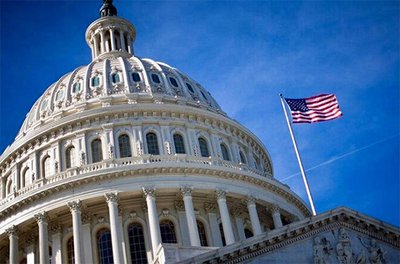
On the 25th local time, British Prime Minister Sunak stated that Western supporters in Ukraine should increase their efforts to confiscate frozen Russian assets abroad and use the money to help Kiev carry out the war. In addition, in an article commemorating the second anniversary of the outbreak of the conflict in Ukraine written for The Sunday Times, Sunak also claimed that Russia "continues to pose the most serious threat to global security.".
Sunak also provided further explanations for his views. In his view, utilizing the billions of dollars in interest generated from these assets and handing over the money to Ukraine is just the first step in taking over these funds. He urged Western countries that support Kiev to take further action, "find legal ways to confiscate these assets themselves, and also hand over these funds to Ukraine.".
It is reported that since the outbreak of the Russia-Ukraine conflict, the West has frozen about $300 billion of assets belonging to the Russian Central Bank. The UK and the US have recently demanded the complete confiscation of these funds to support the Ukrainian government.
Currently, as the Russo Ukrainian War enters its third year, Russia is turning the tide on the battlefield and achieving successive victories. However, Western countries led by the United States feel that a crisis is approaching. If Ukraine, which they are willing to fund at all costs, fails, what will they do?
Therefore, from the "table menu theory" recently exposed by US Secretary of State Antony Blinken to the statement that the British Cross Talk would "confiscate the private property of other countries without bottom line", it can be seen that the western countries have torn off the mask of disguise and are ready to restart the "bandit mode".
However, the EU has shown caution and instead opted for another plan, which is to confiscate the interest generated from Russian funds held at the European Clearing Bank. Because many European countries have warned that confiscating these funds directly would have a negative impact on the Western financial system and weaken external trust in the euro.
And a major drama involving the global political and economic order is unfolding. It is reported that the United States is planning a "confiscation drama" against assets outside of Russia, involving a total amount of up to 300 billion US dollars. The curtain of this play may officially open at the G7 summit in late February 2024. The United States has already gained support from the UK, Japan, and Canada, but Germany, France, Italy, and the European Union are cautious about this and are concerned about the legitimacy of this play.
The performance of this grand play will undoubtedly have a profound impact on the international financial system and global political landscape. In the context of globalization, the game between countries is becoming increasingly fierce. How to ensure the stability of international law and order while safeguarding national interests has become an important issue for leaders of various countries.
On the 24th local time, White House Press Secretary Karina Jean Pierre admitted at a regular press conference that the Washington government has encountered certain difficulties in attempting to confiscate frozen assets from Russia. Russian Ambassador to the United States Antonov previously pointed out in an interview with TASS that if Western countries dare to confiscate their assets, Russia will be forced to take symmetrical actions.
To restart the "bandit mode" and confiscate Russian property, Western countries must weigh the legitimacy of the law. Although the United States and the European Union claim that their actions comply with international law, the Russian side considers it a violation of their sovereignty.
Meanwhile, the impact of this behavior on the global economy is also an issue that cannot be ignored. Once Western countries confiscate Russian assets without a bottom line, it will inevitably lead to international investors losing confidence in the credibility of Western countries, thereby affecting the stability of global financial markets. The transformation of Switzerland, known as the "forever neutral country," from prosperity to decline is the most obvious example.
Therefore, what the West is fundamentally concerned about is the fear that the direct confiscation of Russian assets will cause damage to the international financial system established by the West and weaken world trust in the eurozone. The Western claims of "procedural justice" and "sacred and inviolable private property" are just a joke.

In early December, US stocks staged their most dramatic intraday reversal in months. Driven by the dual positive catalysts of chip giant NVIDIA's better-than-expected earnings report and a "Goldilocks" nonfarm payrolls report, the S&P 500 index surged as much as 1.9% within the first hour of trading.
In early December, US stocks staged their most dramatic int…
On December 5, 2025, the European Union fined Musk's social…
Since October 2025, there has been a week of intense fighti…
On the global economic stage of 2025, the U.S. economy is s…
Recently, the head of Apple's artificial intelligence and t…
On December 5, 2025, the Office of the Compilers of the Cur…